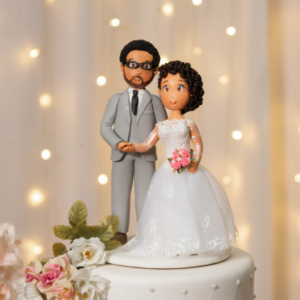Love is a universal emotion that transcends cultures, languages, and time periods. Yet, the way love is understood, expressed, and experienced can vary significantly from one person to another. This variation stems from personal experiences, cultural influences, emotional needs, and individual perceptions. What one person perceives as the pinnacle of love may seem entirely different to someone else, reflecting how complex and multifaceted this emotion truly is.
In this article, we will explore how love means different things to different individuals, analyzing the factors that contribute to these variations, and how recognizing these differences can help foster better relationships.
- Introduction
- The complexity of love and its diverse meanings.
- Why love is understood differently by different people.
- The Role of Personal Experience
- How life events shape one’s understanding of love.
- Examples of how past relationships influence one’s perception of love.
- Cultural Influence on Love
- How cultural norms affect the interpretation of love.
- Variations in love expression across different cultures.
- Individual Emotional Needs and Personality
- The impact of emotional needs on love’s meaning.
- How personality traits shape the way love is expressed and received.
- The Impact of Family and Childhood
- How family dynamics shape one’s understanding of love.
- The role of early childhood experiences in defining love.
- Modern Influences: Media and Society
- The influence of media on love’s perception.
- How societal ideals and social media impact modern love.
- Summary
- The importance of understanding love’s diverse meanings.
- How recognizing differences can strengthen relationships.
Introduction: The Complexity of Love and Its Diverse Meanings
Love is often described as a universal language, but its meaning is far from universal. It is a deeply personal emotion that can vary widely depending on an individual’s background, experiences, and personal beliefs. While some people might define love as a deep emotional connection, others may see it as an action or commitment. These varied definitions of love stem from the different ways individuals encounter and experience love throughout their lives.
Understanding how love can mean different things to different people is crucial for forming healthy, fulfilling relationships. By appreciating the diverse perspectives on love, we can become more empathetic and mindful in our interactions, recognizing that love is not a one-size-fits-all experience.
The Role of Personal Experience
How Life Events Shape One’s Understanding of Love
Personal experiences are among the most significant factors that shape how individuals define love. Relationships, whether romantic, familial, or platonic, serve as the building blocks of a person’s understanding of love. People who have experienced unconditional love in their past relationships may have a more positive and hopeful view of love, while those who have experienced betrayal or loss might approach love more cautiously or with skepticism.
Positive relationships—where individuals feel valued, respected, and understood—often lead to a more optimistic view of love. On the other hand, negative experiences, such as unrequited love or emotional abuse, can leave individuals with a more guarded or wary perspective on love.
Examples of How Past Relationships Influence One’s Perception of Love
- Positive Experience: Someone who has been in a loving, supportive relationship might view love as a partnership built on trust, communication, and mutual growth.
- Negative Experience: A person who has experienced betrayal or manipulation may define love as something fragile, unreliable, or even dangerous, leading them to approach future relationships with caution.
Life events such as heartbreak, rejection, or enduring love can redefine how individuals interpret and expect love to manifest in their lives. Each relationship teaches lessons about love—whether it’s about vulnerability, loyalty, or resilience.
Cultural Influence on Love
How Cultural Norms Affect the Interpretation of Love
Culture plays a vital role in shaping how individuals perceive and express love. Each culture has its own norms, values, and traditions that influence the way love is understood. For instance, in some cultures, love is expressed through grand gestures and verbal declarations, while in others, it is shown through quiet actions of care and responsibility.
In many Western societies, love is often romanticized and portrayed as a
deep emotional connection, often celebrated through physical affection, verbal affirmations, and individualistic ideals such as finding a soulmate. In contrast, some Eastern cultures may emphasize love as a duty, where commitment, respect, and loyalty to family and community are central aspects of romantic and familial relationships.
Variations in Love Expression Across Different Cultures
- Western Cultures: Love is often viewed as an emotional experience where individual choice, passion, and romantic ideals play key roles. People are encouraged to express their feelings openly and pursue personal happiness through love.
- Eastern Cultures: In many Eastern traditions, love is associated with duty and responsibility, often placing the needs of the family or community above individual desires. Arranged marriages in some cultures are based on the belief that love can grow over time through shared experiences and mutual respect.
- Latin American Cultures: Here, love is often celebrated with passion and intensity. Emotional and physical affection is freely expressed, and love is seen as both a romantic and family-oriented commitment.
Understanding cultural influences on love helps us recognize that the way love is defined and expressed is not universal, but shaped by the societal values and norms of different communities.
Individual Emotional Needs and Personality
The Impact of Emotional Needs on Love’s Meaning
Every person has unique emotional needs, which heavily influence how they experience and define love. For some, love is about emotional security—feeling safe, understood, and supported by a partner. For others, love might be about excitement and adventure, where passion and novelty are key components of a fulfilling relationship.
Individuals with a strong need for emotional validation may interpret love as constant reassurance and affection, while those who value independence may define love as a balance between closeness and personal space.
How Personality Traits Shape the Way Love Is Expressed and Received
Personality traits, such as introversion, extroversion, and emotional sensitivity, also play a significant role in how people perceive love. Extroverted individuals may feel most loved when they receive frequent verbal affirmations and physical affection, while introverts might prefer quiet moments of connection, such as spending quality time together in a peaceful environment.
- Example: An extroverted person might express love through grand gestures, social activities, and frequent communication, while an introverted individual might prefer showing love through small, thoughtful acts and quiet companionship.
These differences in personality highlight the importance of understanding each other’s love languages, which is a concept that refers to the different ways people give and receive love—whether through words of affirmation, acts of service, quality time, gifts, or physical touch.
The Impact of Family and Childhood
How Family Dynamics Shape One’s Understanding of Love
The relationships we observe and experience within our families serve as the foundation for how we understand love. Children raised in nurturing, supportive households where affection is freely expressed are more likely to develop a healthy and positive view of love. In contrast, individuals who grow up in environments where love is conditional or absent may develop a more cautious or mistrustful perspective on love.
Parents and caregivers model how love should be expressed and received. Whether they show love through verbal affirmations, physical affection, or acts of care, children internalize these behaviors and carry them into their adult relationships.
The Role of Early Childhood Experiences in Defining Love
- Positive Example: A person who grew up in a household filled with affection, encouragement, and open communication may define love as an emotional connection based on trust, support, and mutual respect.
- Negative Example: Someone raised in a household where love was tied to achievements or conditional approval may come to view love as something that must be earned, leading to a more transactional or performance-based approach to relationships.
The way love is modeled during childhood has lasting effects on how people approach love later in life, influencing their expectations and behaviors in romantic, familial, and even platonic relationships.
Modern Influences: Media and Society
The Influence of Media on Love’s Perception
Modern media—movies, television, social media, and literature—play a significant role in shaping contemporary views on love. Popular media often portrays love as an idealized, perfect experience where romantic gestures and happy endings are the norm. This can create unrealistic expectations, where people come to expect love to be effortless, passionate, and consistently fulfilling.
Romantic comedies, for example, frequently depict love as a whirlwind experience filled with dramatic gestures and emotional highs. While these portrayals can be entertaining, they may distort people’s understanding of real, long-term love, which often requires effort, communication, and compromise.
How Societal Ideals and Social Media Impact Modern Love
Social media has further influenced how love is perceived by promoting highly curated images of relationships. People often compare their own relationships to what they see online, where couples share only the highlights—celebrations, vacations, and romantic moments—without revealing the everyday challenges. This can lead to dissatisfaction or pressure to live up to unattainable standards of perfection in love.
- Example: A couple who frequently posts about their seemingly perfect relationship on social media may unintentionally create unrealistic expectations for others, leading people to believe that love should always be flawless and conflict-free.
Modern society’s emphasis on independence, self-love, and individual success has also redefined love. While previous generations often prioritized family and partnership, today’s cultural norms encourage people to focus on personal growth and fulfillment alongside romantic relationships.
Summary: The Importance of Understanding Love’s Diverse Meanings
Love is a complex and multifaceted emotion that means different things to different people. Personal experiences, cultural background, emotional needs, family dynamics, and media influence all shape how individuals perceive and express love. By recognizing these diverse definitions of love, we can approach relationships with greater empathy and understanding, appreciating that love is not a one-size-fits-all emotion.
Understanding that love can be interpreted and experienced in various ways helps us navigate relationships more effectively. Whether it’s through grand romantic gestures, quiet acts of care, or emotional support, love takes on different forms for each individual. By appreciating these differences, we can create deeper, more meaningful connections with the people in our lives.




